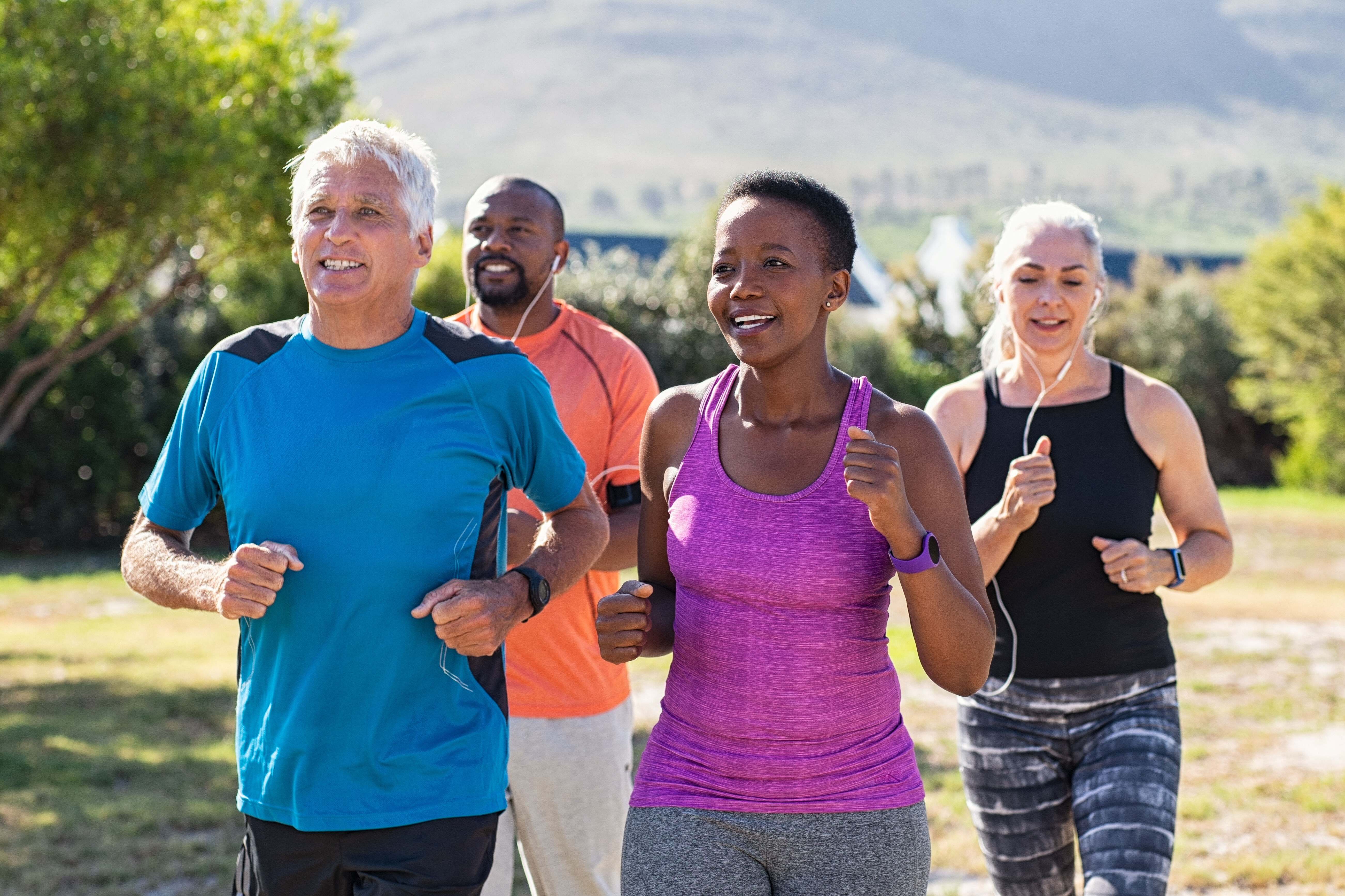In our quest for wellness, two pillars stand out for their profound impact on health: exercise and sleep. It's a fascinating dance of activity and rest - one fuels your day, and the other recharges you for the next. A compelling statistic from the National Sleep Foundation reveals that people who exercise regularly experience better sleep quality and feel more alert during the day compared to those who don’t.(1) This interplay between exercise and sleep is a key factor in achieving optimal health, influencing everything be it mood, appearance, physical strength, and simply the quality of rest you get lying on your favorite bed sheet set.
The Science Behind Exercise and Sleep
Exercise and sleep have a bidirectional relationship, with each factor impacting the other in various ways. Regular physical activity can significantly improve sleep quality by:
Regulating the body's internal clock: Exercise, especially in the late afternoon, raises the body's temperature, which later drops back to normal, signaling the body to prepare for sleep.
Enhancing deep sleep: Studies have consistently shown that exercise, particularly aerobic activities, increases the amount of restorative deep sleep one gets, which is crucial for physical recovery and cognitive function.(2)
Reducing sleep complaints and insomnia : Exercise has been found to decrease sleep complaints and insomnia in patients, with the effects of aerobic exercise on sleep appearing to be similar to those of sleeping pills.(3)
Improving sleep timing and duration: Exercise has been shown to decrease the time it takes to fall asleep and increase total sleep time and sleep efficiency.(4)
Relieving stress and resetting the circadian clock: Exercise can help relieve stress, reset the circadian clock, reduce sleep disorder symptoms, and improve the quality of sleep.(5)
A well-rested body can perform better physically, allowing for more effective workouts, creating a beneficial cycle between exercise and sleep.(2) It is essential to be mindful of the timing of exercise and its impact on sleep quality, as exercising too late in the day can interfere with optimal sleep.(5)
Overall, incorporating regular physical activity into your routine can significantly improve your sleep quality and overall well-being.
Benefits of Exercise on Sleep
The advantages of incorporating regular exercise into your routine extend far into the night.
Reduces Stress and Anxiety: Physical activity is a powerful stress reliever. By reducing stress and anxiety levels, exercise can make it easier to unwind and fall asleep. Activities like yoga and tai chi are particularly effective in calming the mind and preparing the body for sleep.
Improves Sleep Quality: Regular exercisers often report a more sound, restful sleep. This is partly due to the body's temperature regulation during and after exercise, promoting better sleep. Additionally, exercise can increase sleep efficiency, meaning more time spent in bed is spent sleeping.
Best Exercises for Better Sleep
Finding the right kind of physical activity to encourage better sleep is like selecting the perfect type of mattress for your beauty sleep; it's all about what works best for you. While some exercises are known to energize and invigorate, others are famed for their ability to relax and prepare the body for a restful night.
Yoga: Yoga, especially calming styles like Hatha or Yin, is an excellent choice for evening exercise. The gentle stretching and focus on breath work help to relax the body and mind, easing the transition into sleep. Incorporate poses like Child's Pose, Legs-Up-The-Wall, or Gentle Forward Bends in your nighttime routine for maximum relaxation. The breathing exercises can also prove helpful even as you rest your head on your favorite premium pillows and try to doze off.
Light Aerobics: Low-impact aerobic exercises, such as brisk walking or light jogging, can improve cardiovascular health without being too stimulating before bed. These activities can increase the duration of deep sleep by physically tiring out the body. Also, be sure to finish your aerobic workout at least a couple of hours before bedtime to give your body time to wind down.
Strength Training: Moderate strength training can help you sleep better by relieving muscle tension and stress. Exercises like squats, lunges, and light weightlifting can be beneficial when done earlier in the day. It is important to remember, however, to avoid high-intensity strength training close to bedtime as it can be too stimulating.
Pilates: Pilates is another excellent option for evening exercise, focusing on core strength, flexibility, and overall body awareness. The controlled movements and emphasis on breathing in Pilates can be a great way to de-stress before bed. A mat-based Pilates routine with a focus on relaxation and deep breathing can prove effective in improving sleep.
Tai Chi: This ancient form of martial arts is known for its slow, deliberate movements and focus on breath control. Practicing Tai Chi can reduce stress and anxiety, making it easier to fall asleep and stay asleep. The meditative movements of Tai Chi can be particularly helpful for those with insomnia.
Incorporating these exercises into your daily routine can significantly improve your sleep quality.
Sleep Disorders and Exercise
Regular exercise can be an effective tool in managing common sleep disorders such as insomnia and sleep apnea. Studies have shown that regular, moderate exercise can reduce the symptoms of insomnia, helping individuals fall asleep faster and spend more time in deep sleep.(5)
However, it is also important to remember not to exercise too close to bedtime, as this can sometimes have the opposite effect.(3)
Exercise can also improve sleep apnea by reducing body weight and strengthening respiratory muscles, even gentle exercises can have a significant impact on reducing the severity of sleep apnea symptoms.(5)
Additionally, exercise can relieve stress, reset the circadian clock, reduce sleep disorder symptoms, and improve the quality of sleep.(5)
Overall, incorporating regular physical activity into your routine can significantly improve your sleep quality and overall well-being. However, more research is also needed to compare physical exercise to medical treatments for insomnia.
Creating a Balanced Routine
Finding the sweet spot for exercise in your daily routine can enhance your sleep without causing disruptions.
Optimal Timing: Engaging in exercise during the morning or afternoon can be most beneficial for sleep, as it aligns with the body's natural circadian rhythm. Early morning workouts can also help to kickstart your metabolism and improve your focus and mood for the day.
Avoid Late-Night Workouts: Exercising too close to bedtime can lead to increased heart rate and body temperature, making it harder to fall asleep even on the most comfortable Cali king mattress. If evening exercise is your only option, opt for calming, low-impact activities.
Sleep Hygiene and Exercise
Maintaining good sleep hygiene is crucial when integrating exercise into your routine.
Post-Exercise Wind-Down: Give your body time to cool down and relax after working out, especially if you exercise in the evening. This might include light stretching or meditation to ease the transition to sleep.
Consistency is Key: Regular exercise combined with consistent sleep schedules enhances sleep quality. Establishing a routine that includes regular exercise, diet, and sleep times can significantly improve your overall sleep health.
The synergy between exercise and sleep is undeniable. By harnessing the power of physical activity, you can pave the way for more restful nights and energetic days. And while we’re talking about good sleep, don’t forget the importance of a quality full-size mattress and bed set.
Whether it’s an organic mattress or a non-organic one, a queen-size mattress and box spring for added room and comfort, or one that comes with premium pillows, Mancini’s Sleepworld offers an array of options to suit your needs. Embrace the relationship between exercise and sleep, and step into a world of improved health and vitality. Remember, your journey to better sleep might just start with your next workout!
Sources:
1. Sleep foundation. Physical Activity and Sleep. https://www.sleepfoundation.org/physical-activity
2. Sleep foundation. Exercise and Sleep. https://www.sleepfoundation.org/physical-activity/exercise-and-sleep
3. Hopkins Medicine. Exercising for Better Sleep. https://www.hopkinsmedicine.org/health/wellness-and-prevention/exercising-for-better-sleep
4. NIH. Interrelationship between Sleep and Exercise: A Systematic Review. https://www.ncbi.nlm.nih.gov/pmc/articles/PMC5385214/
5. Healthline. 5 Reasons Exercise Improves Sleep. https://www.healthline.com/health/5-reasons-exercise-improves-sleep

